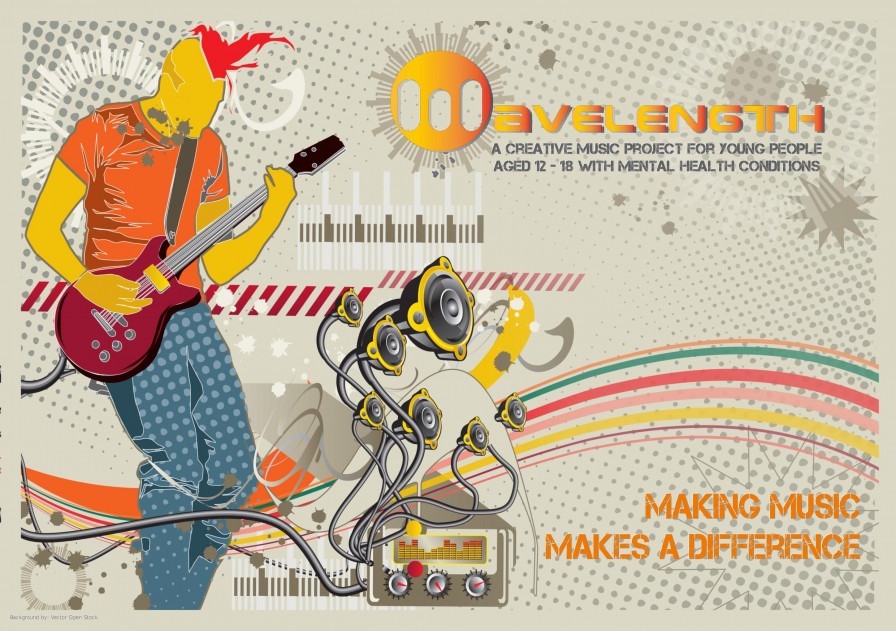From inpatient to outpatient: following a young person through their social and musical journey by Dan Cippico (Music Leader on Quench Arts’ Wavelength project)

Picture the scene. I’m looking through the screen of my computer at a young person equipped with a guitar at Birmingham Children’s Hospital’s Parkview Clinic. It’s one of our first virtual sessions on the Plugin Project*, and the hospital have identified a young person who wants to create music. I sit on the opposite side of the screen, also equipped with my guitar. We’re both nervous for different reasons, but we’re both not used to music-making online. Yet.
*Plugin is a project that runs in mental health inpatient settings across Birmingham for young people aged 12-25, funded mainly by Youth Music.
Within weeks, the young person is learning guitar riffs and basic chord shapes. We’re sharing songs we like and have the beginnings of an original song. We’re both in slightly different guitar tunings, each not too far away from the other - not as a creative decision, but because video call doesn’t lend itself too well to string-instrument tuning, so everything sounds a bit wonky. Despite this, we still have productive sessions, and the young person is attending consistently week after week.
A few weeks later, the Plugin team assigned to Parkview, consisting of myself and two other music leaders, begin engaging the young people in face-to-face sessions. I’m met with enthusiasm by the young guitarist, and we have two sessions where all knowledge is recapped and solidified from the video calls. We have some more sessions together but not long after, the young person is discharged, taking their musical experience with them.
Shortly after, I was working with the young people on the Wavelength project, a community based programme for young people with mental health conditions, aged 12-18 (mainly funded by BBC Children In Need) when I heard the news that this young person will be joining the programme, and has been paired with me for one-to-one sessions, given our previous experience in Parkview Clinic. I was delighted.
Fast forwarding to now, I have been seeing this young person for almost a year in total. They still have some considerable challenges, but their self-reflection on their situation is quite profound.
I have witnessed their considerable musical progression, too. Through music, they are finding that they can express ideas, combat anxiety with new experiences, grow their self-confidence and create with self-belief. Their guitar skills are improving week-by-week, and they have begun to compose songs on the instrument. We’ve even starting looking at drums and piano in addition to the guitar, and we’ve already written a rap song, all lyrics and music composed by the young person under a creative stage-pseudonym. They’ve also occasionally engaged with project group sessions which gave them experience in playing with other musicians, trying out different instruments and helping their social confidence.
Outside of the sessions, the young person meets up regularly with a friend who was a participant on the Plugin project in hospital at the same time. They share musical interests with each other, and any music written in the Wavelength 1-1s. Recently, the young person has told me that their goal is to study music at college, which they are in the process of applying for. To this, from the first video call we had into the hospital ward, it is clear that music has firmly become one of their passions in life, and will always be a part of their journey.
The moral of this story is not to underestimate where that first initial contact and connection, no matter how small or short it is, can take you and the impact it can have on a young person.
